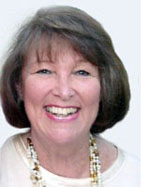By Cynthia Citron

NORTH HOLLYWOOD, California — Perhaps I should recuse myself from reviewing John Is A Father because its star, Sam Anderson, is one of my favorite actors. In addition, he is one helluva nice guy. So it’s especially magical to see him turn himself into a taciturn, fearful, ex-alcoholic loner onstage.
The play was written by Julie Marie Myatt with a minimum of dialogue, since everything that might have been said is written on the amazingly expressive face of its star. You don’t need words to know exactly what he’s thinking.
The story, much like Horton Foote’s The Trip to Bountiful, records an old person’s journey to reconnect with his past. In Anderson’s case, his character, John, is shackled by regrets and remorse for his history of drunken attacks on his wife, Gloria, and indifference and cruelty to his young son, Henry. “I felt smothered by a baby. I didn’t want fragile things in my arms,” he tells Henry’s wife. “Not everyone is built for that kind of life.”
It is Henry’s wife, Patricia (Hilary Schwartz), whom he has come to visit. He has never met her, but he has come at her invitation to meet his seven-year-old grandson, Reggie, for the first time.
Patricia is actually Henry’s widow, since he was killed six years earlier in Afghanistan. (John was “not invited” to the funeral, at Gloria’s insistence, Patricia tells him.) It is clear that Patricia is trying to move on, but before she does she is anxious to hear “John’s side of the story,” because she only knows the tales Henry has told her about his father and his childhood.
And so John and Patricia meet and have a conversation that is so hesitant and awkward that it is painful to watch. Schwartz as an actress is every bit as mesmerizing as Anderson, and the two make this scene a masterpiece of spoken and unspoken communication.
“Later, when I matured, I had a love for him,” John tells her. “I want you to know I’m no monster.”
“Don’t just sit here feeling sorry for yourself,” she says. “I’m not angry, just a little lost.” Then, as he attempts to leave, she adds, “I know you have a habit of running. I need you to grow up. Right now!”
This intense scene takes place in her kitchen in Phoenix. Earlier, the set consists only of multiple gray boxes which serve as the setting for several varied locales and upon which is projected smudgy film of his journey from Los Angeles.
While still in Los Angeles he has a wry conversation with a homeless buddy (Mark Costello) and then, at the airport, with a gay couple (Carl Johnson and John Gowans) who question him insistently in an effort to be friendly. They are unintentionally hilarious, and you can sympathize with John as he struggles to ignore them without being impolite.
The play, under the tight direction of Dan Bonnell, is slow-paced, with long pauses that serve to heighten the emotional content of the conversation between the defensive father and his determined daughter-in-law. Earlier, in the conversation between John and his buddy, the pace is also hesitant, but it sets the mood and reveals the temperament of this quiet man who has lived most of his life in solitude. You can feel John’s pain, his anxiety, and his trepidation as he goes to meet the only family he has left and silently agonizes over the reception he will receive. And you can’t help but agonize with him. And forgive him.
John Is A Father is having its world premiere as part of the 25th anniversary season of The Road on Lankershim. It is running concurrently with Birder, also written by Julie Marie Myatt. John Is A Father runs Thursdays at 8 p.m., Saturdays at 3 p.m., and Sundays at 7 p.m. through Sunday, July 3rd.
The Road Theatre is located at 5108 Lankershim Blvd. in North Hollywood. For tickets call (818) 761-8838 or visit www.roadtheatre.org.
*
Citron is a freelance writer specializing in coverage of the arts. She may be contacted via cynthia.citron@sdjewishworld.com. Comments intended for publication in the space below MUST be accompanied by the letter writer’s first and last name and by his/ her city and state of residence (city and country for those outside the United States.)